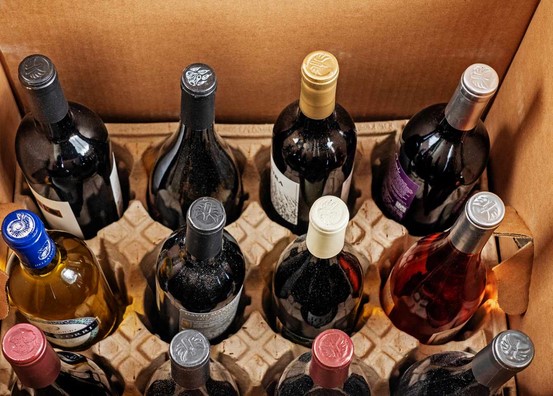Acquiring a liquor license is a crucial step for individuals, businesses, and entrepreneurs looking to operate in the beverage alcohol industry. Whether you’re planning to open a restaurant, a bar, a brewery, a winery, or a liquor store, understanding the process and requirements for obtaining a liquor license is essential. In this article, we will guide you through the complexities of securing a liquor license, from understanding the types of licenses to the application process and tips for a successful application.

Understanding the Types of Liquor Licenses
Liquor licenses come in various types, each tailored to specific activities and beverage categories. Understanding the types of licenses is the first step in the process:
- On-Premises Licenses: These licenses allow the sale and consumption of alcoholic beverages on the premises where they are sold. Examples include bars, restaurants, and clubs.
- Off-Premises Licenses: These licenses permit the sale of alcoholic beverages for off-site consumption. Liquor stores and convenience stores typically hold these licenses.
- Brewery, Winery, and Distillery Licenses: These licenses are specific to manufacturers of alcoholic beverages. Breweries, wineries, and distilleries require unique licenses to produce and distribute their products.
- Special Event Licenses: Temporary licenses for specific events or festivals, allowing the sale of alcoholic beverages during the event.
- Wholesale Licenses: These licenses are for businesses that sell alcoholic beverages to other businesses, such as distributors and wholesalers.
Research and Planning
Before diving into the application process, research and planning are essential:
- Determine License Availability: Research the availability of licenses in your area. Some regions have limits on the number of licenses issued.
- Legal Requirements: Familiarize yourself with local, state, and federal laws governing alcohol sales and distribution. Be aware of age restrictions, hours of sale, and other regulations.
- Location and Zoning: Ensure that your intended location complies with local zoning laws and regulations related to alcohol sales.
- Business Structure: Decide on your business structure, as this can affect the type of license you require.
The Application Process
Once you’ve completed your research and planning, it’s time to initiate the application process:
- Contact the Appropriate Agency: Find the regulatory agency responsible for issuing liquor licenses in your state or locality. This is often a state alcohol control board or commission.
- Request Application Forms: Request the necessary application forms from the regulatory agency. Be prepared to provide detailed information about your business, including location, ownership, and the intended use of the license.
- Fulfill Requirements: Carefully complete the application forms, ensuring that you include all requested documents and fees. This may involve background checks, fingerprinting, financial statements, and other requirements.
- Public Notice: In many cases, you will be required to provide public notice of your intent to obtain a liquor license. This typically involves posting a notice at the location where the license will be used.
- Community Input: Some jurisdictions may require input from the community, such as public hearings, regarding your application.
- Local Government Approval: In many cases, local government approval is necessary before your application can be considered at the state level. This may involve obtaining a letter of support from the local municipality.
- Waiting Period: There is often a waiting period during which your application will be reviewed and processed. This period can vary widely, so be patient.
- License Issuance: If your application is approved, you will receive your liquor license. Ensure that you understand the conditions and responsibilities that come with the license.
Tips for a Successful Application
To increase your chances of a successful application, consider the following tips:
- Professional Assistance: Consider seeking legal or consulting assistance, especially if you’re navigating the process for the first time.
- Complete Documentation: Ensure that your application is complete and all required documentation is included. Incomplete applications can lead to delays or denials.
- Fulfill Local Requirements: Meet all local requirements and regulations before submitting your application at the state level.
- Community Engagement: Be proactive in engaging with the local community to garner support for your application.
- Background Checks: Be prepared for background checks and provide accurate information.
- Financial Stability: Demonstrating financial stability can be critical in the approval process. Be ready to provide financial statements and other proof of financial responsibility.
- License Renewal: Be aware of the need for ongoing compliance, including annual fees and license renewal.
Compliance and Responsibility
Securing a liquor license is only the beginning. Ongoing compliance and responsibility are crucial:
- Age Verification: Ensure that your staff have training to verify the age of customers and prevent sales to underage individuals.
- Responsible Service: Promote responsible alcohol service, and avoid overserving customers.
- Compliance with Regulations: Continuously monitor and adhere to local, state, and federal alcohol regulations.
- Record Keeping: Maintain accurate records, as these may be subject to inspection.
Conclusion
Acquiring a liquor license is a multifaceted process that requires careful planning, research, and adherence to local, state, and federal regulations. While it may be challenging, the benefits of obtaining a liquor license are numerous, opening the doors to opportunities in the beverage alcohol industry. Whether you’re aiming to establish a thriving restaurant, a bustling bar, or a successful brewery, understanding the process and following it diligently will set you on the path to a responsible and successful venture in the world of alcohol sales and distribution.
